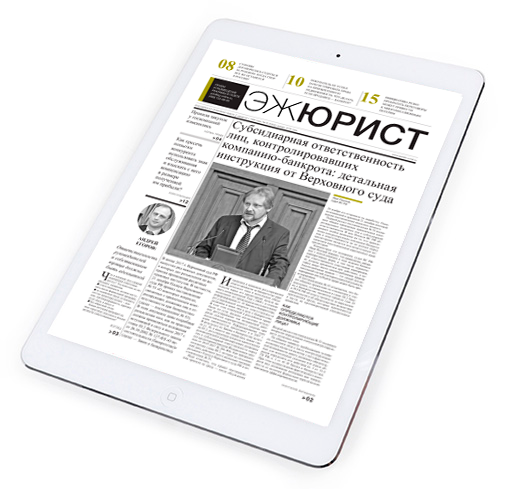Taxation of foreign companies’ activities in Russia
Let’s consider taxes that foreign companies may be subject to and that a foreign company doing business in Russia is most likely to pay. These are value-added tax (VAT) and corporate profit tax.
Опубликовано:«ЭЖ-Юрист» №38 (940) 2016
Материал для подписчиков издания «ЭЖ-Юрист». Для оформления подписки на электронную версию издания перейдите по ссылке.

ЭЖ-Юрист
Российская правовая газета, издается с 1998 года. Освещает новости законодательства, практику применения законов и нормативных актов, судебную практику по различным отраслям права, предлагает аналитику наиболее актуальных вопросов правоприменения, отвечает на вопросы читателей.
